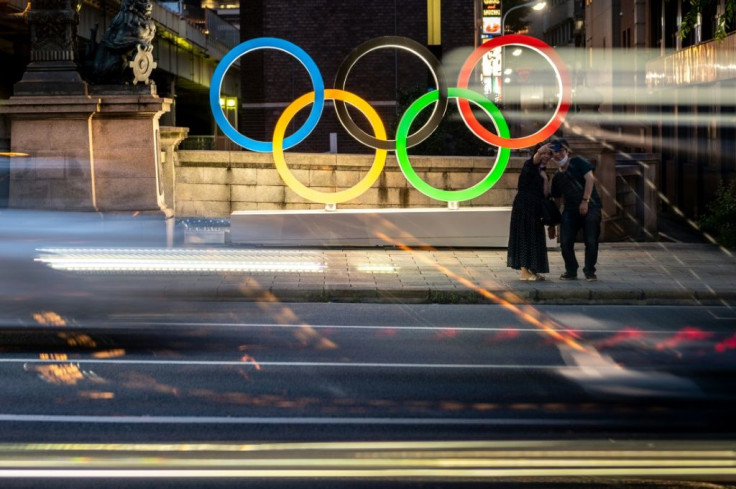Could The Olympics Be Canceled? Tokyo Games Should Go On, Despite COVID Concerns
The status of the Tokyo Olympics remains a point of contention, even with the opening ceremony slated for later this week. There continues to be a belief that the Games should not be played this summer as the number of coronavirus cases in Japan continues to rise.
The spike in COVID-19 cases has put Tokyo in a state of emergency until Aug. 22, two weeks after the closing ceremony on Aug. 8. Spectators have been banned from all events. The possibility of a last-minute cancellation isn’t completely off the table, according to Toshiro Muto, CEO of the Tokyo Olympics' organizing committee.
“We can’t predict what will happen with the number of coronavirus cases. So we will continue discussions if there is a spike in cases,” Muto said at a news conference Tuesday.
“We have agreed that based on the coronavirus situation, we will convene five-party talks again. At this point, the coronavirus cases may rise or fall, so we will think about what we should do when the situation arises.”
This year’s Olympics are wildly unpopular in Japan. Polls over the last two months have indicated that more than three-quarters of people who live in the country don’t want Tokyo to host the event.
Approximately 11,000 athletes from around the world are expected to stay in the Tokyo Games village. Multiple athletes in the village have tested positive for COVID-19, days before the Olympics are set to start.
Odds are, the Games will go on, despite any concerns. The pandemic has already pushed the 2020 Tokyo Olympics by a year, and another postponement would result in a massive financial fallout.
From 2013 to 2016, the Sochi Winter Games and Rio Summer Olympics generated $5.7 billion in revenue for the IOC. About 73% of that revenue came from broadcasting rights.
The Beijing Winter Olympics are less than seven months away.
The contract between the International Olympic Committee and the city of Tokyo only gives the IOC the option to cancel the Olympics. The IOC can terminate the contract if it “has reasonable grounds to believe, in its sole discretion, that the safety of participants in the Games would be seriously threatened,” according to the BBC.
The risk of Olympic athletes getting seriously ill from COVID-19 during the Games is very low.
The IOC expects more than 80% of the competitors to be vaccinated. No country has fully vaccinated more than 71% of its population, The New York Times reports. Just under half of all people living in the United States are fully vaccinated.
Only 22% of the Japanese population is fully vaccinated.
There are restrictions regarding where athletes, coaches and media members can go. People who have traveled to Japan for the Olympics are only allowed to be in the village, designated hotels or venues where competitions are taking place. Athletes are supposed to wear masks when they around others, except when they are eating or doing interviews.
“The numbers we’re seeing are actually extremely low,” Brian McCloskey, chairman of the Independent Expert Panel advising the International Olympic Committee, told reporters, in regard to 61 positive cases connected with the Games as of Tuesday. “They’re probably lower than we expected, if anything.”
The opening ceremony is still scheduled for Friday.

© Copyright IBTimes 2025. All rights reserved.






















